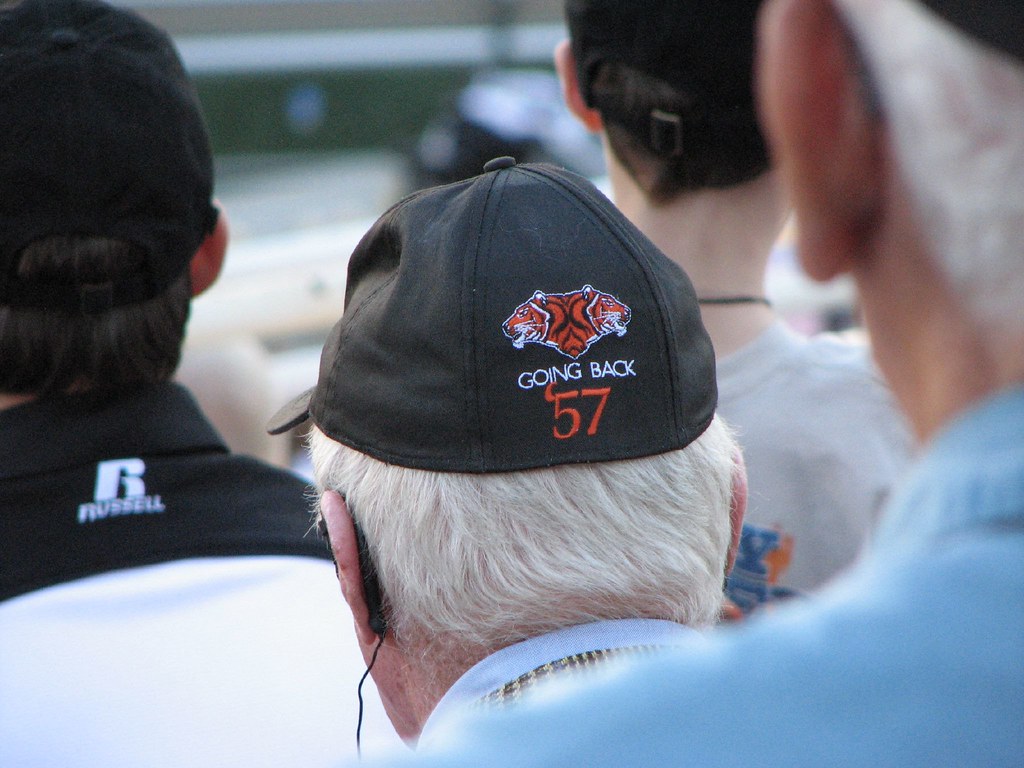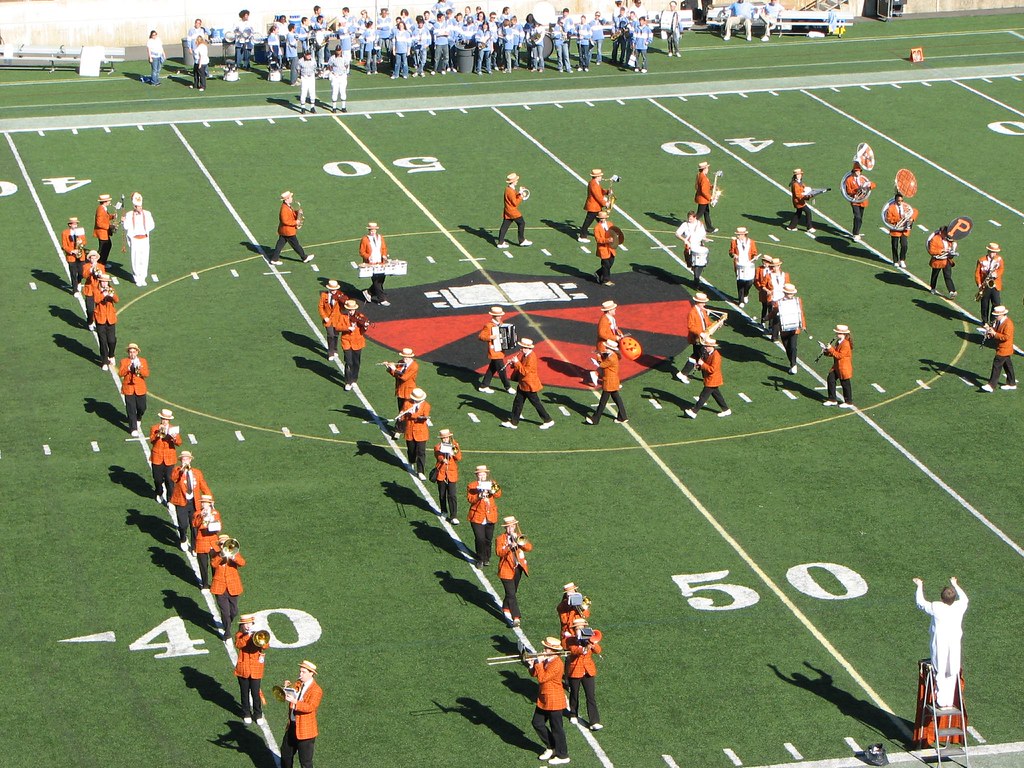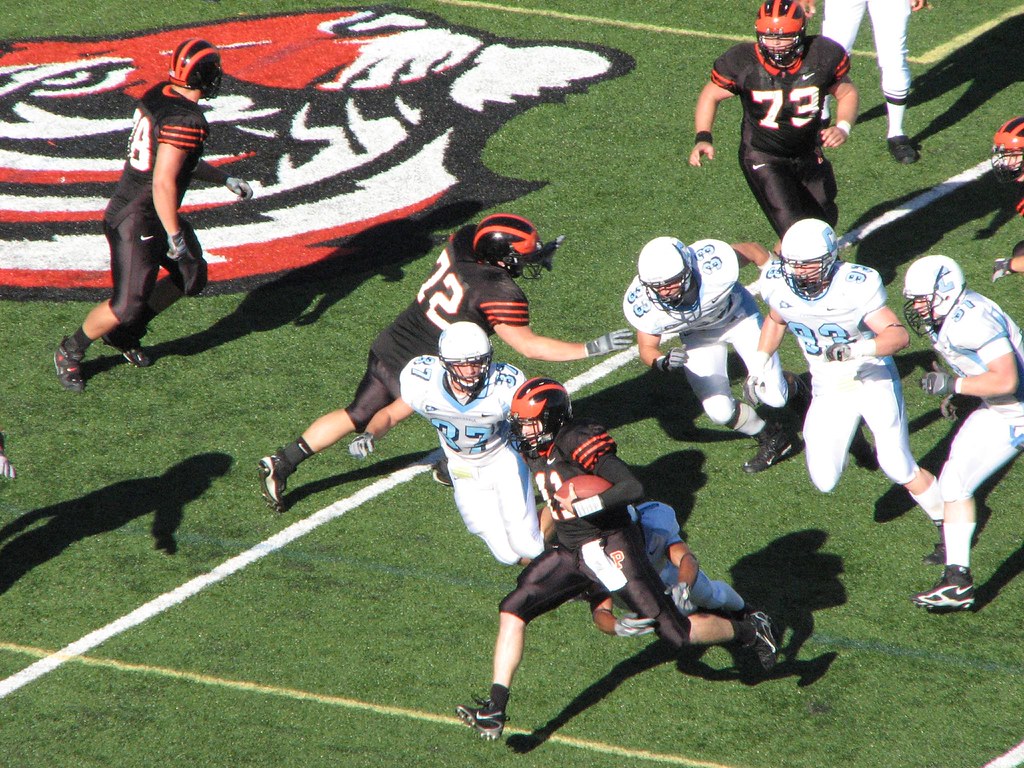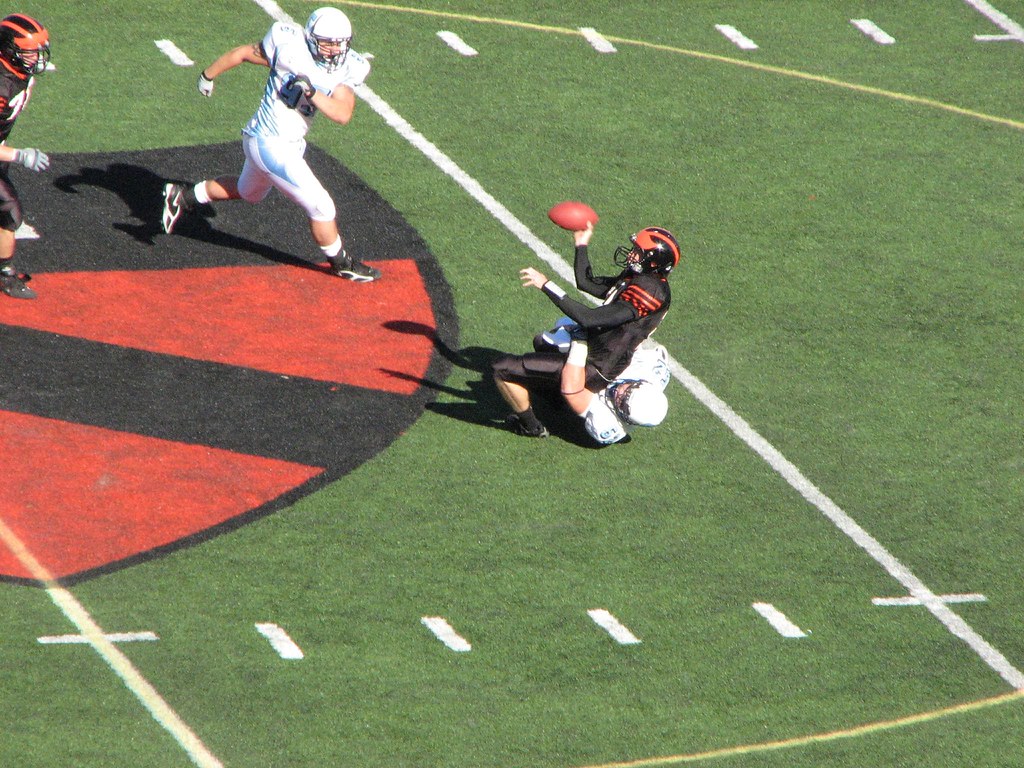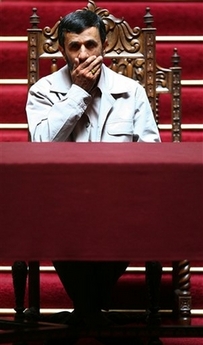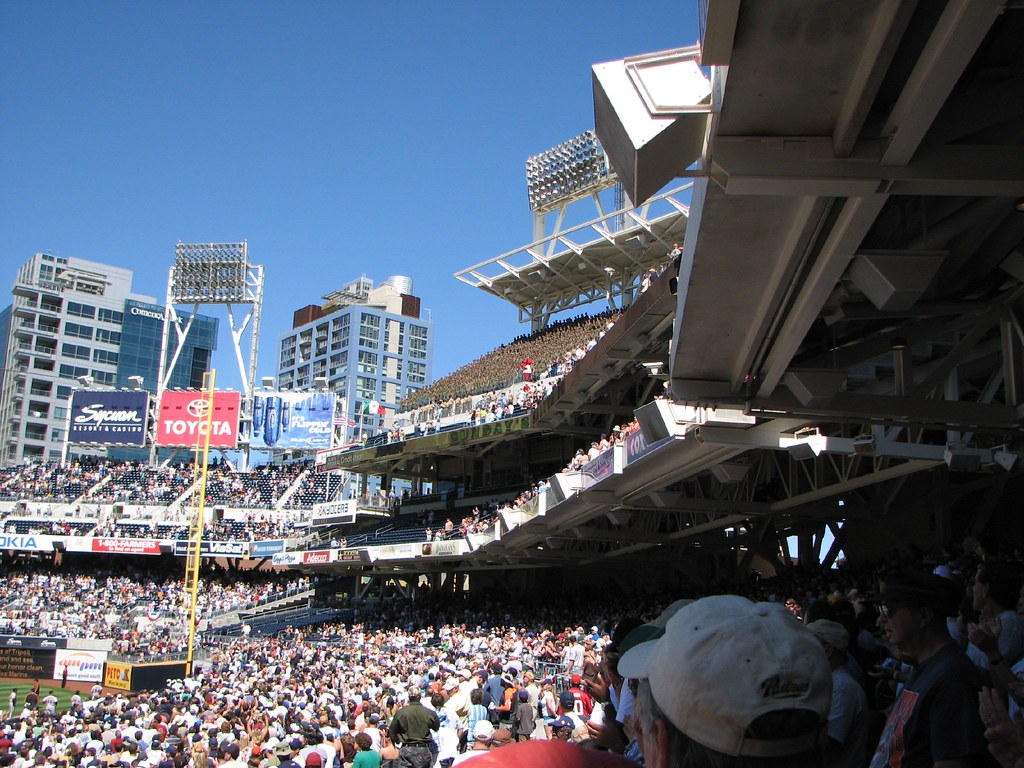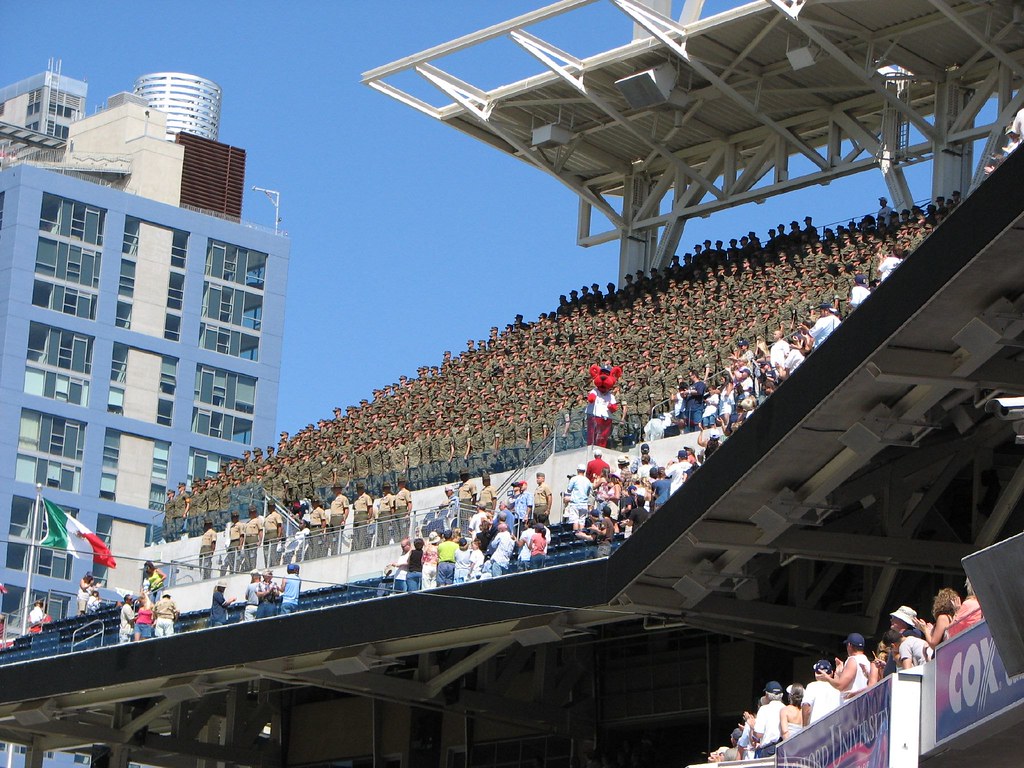Sunday, September 30, 2007
Why are Americans so well off?
No, we Americans are not wealthy because of our natural resources. If natural resources were the driver of national wealth, Russia would be a lot richer than it is. And it isn't our embedded investment in physical capital -- machines, information systems, and such -- either. It is our "intangible" capital (WSJ sub. req.), broadly defined:
A Mexican migrant to the U.S. is five times more productive than one who stays home. Why is that?
The answer is not the obvious one: This country has more machinery or tools or natural resources. Instead, according to some remarkable but largely ignored research -- by the World Bank, of all places -- it is because the average American has access to over $418,000 in intangible wealth, while the stay-at-home Mexican's intangible wealth is just $34,000.
But what is intangible wealth, and how on earth is it measured? And what does it mean for the world's people -- poor and rich? That's where the story gets even more interesting.
Two years ago the World Bank's environmental economics department set out to assess the relative contributions of various kinds of capital to economic development. Its study, "Where is the Wealth of Nations?: Measuring Capital for the 21st Century," began by defining natural capital as the sum of nonrenewable resources (including oil, natural gas, coal and mineral resources), cropland, pasture land, forested areas and protected areas. Produced, or built, capital is what many of us think of when we think of capital: the sum of machinery, equipment, and structures (including infrastructure) and urban land.
But once the value of all these are added up, the economists found something big was still missing: the vast majority of world's wealth! If one simply adds up the current value of a country's natural resources and produced, or built, capital, there's no way that can account for that country's level of income.
The rest is the result of "intangible" factors -- such as the trust among people in a society, an efficient judicial system, clear property rights and effective government. All this intangible capital also boosts the productivity of labor and results in higher total wealth. In fact, the World Bank finds, "Human capital and the value of institutions (as measured by rule of law) constitute the largest share of wealth in virtually all countries."
Once one takes into account all of the world's natural resources and produced capital, 80% of the wealth of rich countries and 60% of the wealth of poor countries is of this intangible type. The bottom line: "Rich countries are largely rich because of the skills of their populations and the quality of the institutions supporting economic activity."
What the World Bank economists have brilliantly done is quantify the intangible value of education and social institutions. According to their regression analyses, for example, the rule of law explains 57% of countries' intangible capital. Education accounts for 36%.
I have not read the World Bank study, but I have always thought that it was impossible for a country to get rich without reliable (and therefore tradeable) definitions of property. Poor people often own property that could support a loan that could start a business, but it is worthless as collateral if they cannot prove they own it and if there are no honest judges to defend the mortgagor from the unscrupulous mortgagee.
National wealth does not depend on resources. If it did, Hong Kong and Singapore would be poor and Iran would be rich. Wealth requires clear laws, honest -- or at least not corrupt -- public officials, and judges who enforce rights in property and contract without regard to the parties involved. Wealth requires investment of money, time, and labor, and investment requires a measure of certainty. The rule of law, particularly regarding the enforcement of property rights and contracts, is the fountainhead of certainty and therefore investment. In the present day and age, if a country does these simple and obvious things it will get rich in a hurry.
This, by the way, is why it is so important to oppose rather than abet corruption, especially in the poor countries of the world.
(4) Comments
One for the alumni: Pictures from the Princeton - Columbia game
I'm in Dublin with jet lag, but I did want to get up some pictures from Princeton's victory yesterday over Columbia (42-32, if you're keeping score).
I sit with the alumni (at around the 35 yard line), and saw this fellow, who attended his 50th reunion, a couple of rows in front of me. Our father was in the Class of 1957, too, and if he were still alive he'd be wearing a hat like that.
The Band executed on-field maneuvers with its usual lack of precision, but did pull off the traditional "Double-Double Rotating 'P'" during the pre-game show.
Princeton Stadium has a very cool new scoreboard that runs instant replays on virtually every play. Which is important for me, because I'm frequently not looking at the right place on the field at the crucial moment.
Action shots:
One of the Tiger touchdowns...
Amazingly, this pass was completed for an actual gain:
Option:
(3) Comments
An observation
Saturday, September 29, 2007
Tiger, tiger, gleaming bright
I'm off to Princeton Stadium to see Tigers and Lions do battle. Then I'm flying to Dublin. I'll bring my camera both places.
(3) Comments
An absolutely brutal book review
This is the most humiliating book review I have read in several months of Sundays.
A laid-off Manhattan advertising executive encounters something that passes for ordinary life, writes about it, and reveals far more about himself than he intended:
[The book] is, as the title suggests, about Starbucks, where the author, an older gent named Michael Gates Gill, son of the New Yorker critic Brendan Gill, went to work in an entry-level job out of desperation.
He was desperate because he had lost his “high powered” advertising position at the J. Walter Thompson agency in New York. Which brings us to the scathing indictment: Gill, with the grating babe-in-the-woods persona he adopts in this book, would have us believe that top advertising executives like him have no idea that there are black people in the world and that some of them run small businesses; that every weekday thousands of people gather at places like Grand Central Terminal for a ritual known as rush hour; that an overwhelming majority of lives are lived in the service of train schedules and bill collectors. If the rest of Madison Avenue royalty is as clueless about the real world as Gill makes himself seem in this book, off with their heads.
If you enjoy cringing in embarrassment, read the whole thing.
(4) Comments
It's Burma, not Myanmar
Why does George W. Bush call Myanmar "Burma"? Because he respects human rights. More here.
(3) Comments
Friday, September 28, 2007
Northern islands
Hyperbole and democratic politics

The wire service photograph feeds on Yahoo are an endless source of profoundly unflattering pictures of presidential candidates. This one, for example, ought to become an instant classic among bloggers who, like me, love to mock John Edwards.
That said, I am not going to mock John Edwards for having said what he said about the condition of young black men in our society.
We cannot build enough prisons to solve this problem. And the idea that we can keep incarcerating and keep incarcerating — pretty soon we’re not going to have a young African-American male population in America. They’re all going to be in prison or dead. One of the two.
Yes, it is hyperbole -- obviously -- and I am quite certain that I would not agree with Edwards' prescription for changing the result. But Edwards wants to grab us by our neck and make us pay attention to a serious problem that is easier to deny than solve. The proportion of African-American men in the criminal justice system is surely such a problem, being both serious and easy for most actual voters to ignore, deny, or rationalize. Perhaps hyperbole in the service of advocacy is necessary to drive democratic political change in such circumstances.
All of which reminds me: What other serious problem is easier to deny than solve? The threat of Islamist jihad.
(4) Comments
Thursday, September 27, 2007
The first person plural American-style
The reluctance of journalists who carry American passports to think of themselves as Americans is perhaps the single ugliest attribute of any profession. Or it would be if journalism actually were a profession.
CWCID: Glenn Reynolds.
(10) Comments
Caption This!!!
Yes, I remain unbelievably busy, and that means that my blogging is thin soup indeed. There is, however, always time for a (unjudged) caption contest!
The original caption is tedious almost beyond belief:
Iran's President Mahmoud Ahmadinejad listens to Bolivia's President Evo Morales, unseen, in La Paz, Thursday, Sept. 27, 2007. Ahmadinejad is in Bolivia after attending the U.N. General Assembly in New York to strengthen ties with South American leaders who are embracing him as an energy and trade partner and counterweight to U.S. influence. Ahmadinejad will travel next to Caracas to meet Venezuela's President Hugo Chavez.
Yeah, right.
(18) Comments
A question for Robert Redford
Robert Redford is going to produce the movie version of Richard Clarke's nonfiction book, Against All Enemies. The question is, will Redford's movie include the vivid and surprising scene described in pages 143-144?
I'm guessing not. Anybody want the other side of that action?
(6) Comments
Wednesday, September 26, 2007
O'Quiz!!!!
I am buried in real work and my blogging is lame, but I can still take a mean O'Quiz. I scored 7 against an average of only 4.76.
Do even better than me.
(11) Comments
Tuesday, September 25, 2007
The Fog of War?
Nothing in the Middle East (and maybe even other parts, like North Korea) should necessarily be viewed as happening in isolation. There is a regional conflict well underway now, and it includes 175,000 US troops in Iraq and environs, the Israeli military, Hezbollah, the Iranian Qods forces and possibly others as well. Last summer's skirmish between Hezbollah and Israel in Lebanon was very much a part of the contest for regional hegemony by a Shiite vanguard led by Iran and its proxies. It may be that Israel is acting effectively as an American and Sunni Arab proxy to weaken Syria and therefore the Iranian axis.
The pressure on Assad is immense. Does Israel have significant intelligence assets inside Syria? It must. A clandestine attack such as that launched September 6th could not have succeeded otherwise. Is Israel acting with American and Sunni Arab assistance? Again, it is hard to believe it isn't. Tacit support has become obvious. But it must also be receiving active assistance.
I don't think the current President intends on leaving office with this situation unresolved. And if you want to increase pressure on the Iranian regime, squeezing Syria (and prying it free from Iranian influence) is a very good place to start. Certainly Israel is more than capable of executing on that front.
(10) Comments
A question for Mitt Romney on regime change in Iran
Last week, I was invited to participate in a blogger conference call with Mitt Romney's Policy Director Sue Canfield and Stephen Smith, who runs his new media communications strategy. Other accounts of the call are here and here.
Governor Romney has spoken about Iran in tough language, with fraught references to the threat posed by the "Iranian regime." His principal policy document includes this admirable quotation:
The Iranian regime threatens not only Israel, but also every other nation in the region, and ultimately the world. And that threat would take on an entirely new dimension if Iran were allowed to become a nuclear power. And just think of the signal a nuclear Iran would send to other rogue regimes with nuclear ambitions - this could be the tipping point in the development and proliferation of nuclear regimes.
Now, anybody who follows the debate over Iran policy knows that the Bush administration has been divided over whether the United States should explicitly advocate and promote a change in the regime in Iran. It is a complex question and I am not sure how I would land if I were president. However, it seems to me that any presidential candidate should be able to give an answer even if it is "I decline to answer because I do not want to impair my freedom of action once elected." Ms. Canfield essentially avoided my question, answering that only the Iranian people could decided that. While it is true in some literal sense that "only the Iranian people" can decide to change the regime, that does not deal with my question, which was whether the United States should advocate that the Iranian people change the regime. This is a question that needs to be answered in the development of any coherent strategy to contain Iran, and the Romney campaign did not answer it.
I followed up with an emailed question to Steve Smith:
Stephen,
Sorry to torture Sally Canfield on the Iran question. Perhaps I was unclear, because I did not think that it was posing a hypothetical. If I sounded irritated it was because I thought she was dodging it.
Let me try again:
There is a debate in policy circles about whether "regime change" in some form should be an objective of United States policy toward Iran. The minority view is that the Islamic Republic is irredeemably expansionist, revolutionary in ideology and ambition, and that it will take any concession as a victory. This view says that none of the United States, Israel, Europe, or non-compliant Muslim states in the region will be safe from Iranian proxy terrorism or nuclear coercion unless and until the government of Iran changes not only its personnel, but its very character. This school of thought further believes that the prospects for internal revolution in Iran would be improved if the United States specifically and publicly endorsed regime change, and promoted it with a communications strategy and perhaps other forms of subversion.
The majority view (as nearly as I can tell) holds that (i) demanding regime change will alienate our more "realist" European allies, (ii) cause the doves *within* the Iranian regime to lose credibility, which will make it harder for Iran to negotiate away its nuclear program, and (iii) undermine Iranian democrats who are pushing for change internally by associating their cause with the foreign policy ambitions of the United States. This school of thought says that we should *not* make "regime change" a stated objective of American foreign policy.
A third position is that the United States should deny that it endorses regime change, but nevertheless work to promote it. I appreciate that if this is the Governor's position he cannot say so on the record if he does not want to be boxed in as president. However, an off-the-record confirmation of this point of view would be welcome.
If there is a fourth position, I am not sure what it would be.
So, does Governor Romney believe that the United States should make regime change in Iran an explicit objective of American foreign policy, or not. If so, why? If not, why not?
I have not received an answer and I assume that is because the Romney campaign does not believe it needs or ought to answer a blogger of my trivial stature. It would be delightful, however, if somebody with greater clout than I -- a major newspaper, perhaps -- would ask the same question of all presidential candidates. I can think of no question that would better expose a candidate's thinking on what will probably be the most puzzling foreign policy challenge of the next decade.
(2) Comments
Saudi Grlz!
This is hilarious. We definitely "need more like this, please." Any society in which the presence of a 12 year-old girl can shut down a soccer match is in desperate need of reform. If democracy must come from the nozzle of a pepper spray cannister, so be it.
(2) Comments
Poor taste on the campaign trail
I desperately hope that Giuliani campaign central had nothing to do with this hideous idea.
Yes, blogging has been lamer than an old nag. I'm busy adding to GDP.
(5) Comments
Monday, September 24, 2007
Strong women with really strong backs
The sun came up over a misty Lake Carnegie this morning, and the women's crew was out in force.
(2) Comments
Republicans and race
Paul Krugman's column this morning is about Republicans and race. Yes, it is full of the usual offensive tone and sweeping generalizations, but when you scrape off those barnacles it is, unfortunately, substantially true. Republicans have not found it in themselves to appeal to any American ethnic group that is not rooted in Europe, and that is going to cost them.
(33) Comments
Towel toss
Sunday, September 23, 2007
One for the Iowans
A friend of mine with deep roots in the Hawkeye State, inspired by my link to Iowahawk's "machine shop of horrors" post (pictures of old time farm tools), sent me an interesting old photograph of threshing time in the Iowa of the 1920s. His email is below the picture:
Around Iowa, there were threshing "teams," which were basically just a bunch of neighbors who agreed to harvest each others crops and to engage in the then manual process of removing the corn from the cobs once the corn was brought in from the field. (This is now all done in the field by huge combines that pull the corn off the stalk and then remove the kernels from the cob, all in one fell swoop.) You can imagine how much time that would take if you did it by hand, so there was real benefit in pooling resources, especially since there was a clear need to get the crops out of the field as soon as possible once it was ready and to then get the corn in a form you could use.
Threshing day was apparently a big event. My mother says you would skip school and, of course, you had to prepare enough food for everyone to eat. The remarkable part to me is that my grandfather farmed the very same 160 acre plot of land from when he got married right after World War One through the late 1960's. The critical difference, however, was equipment. Before World War Two, it was all horses. [A picture of his team appears at the end of the post. - ed.] After World War Two, however, everyone got tractors and combines, and it was all automated. It was clear to me as a kid that farming 160 acres with a team of horses would have been a huge task and about as much land as could be farmed by one person (and even then, you had to pool resources to do it). Once the tractors showed up though, everything changed. Farming 160 was not all that difficult, and the more industrious farmers were able to farm 320 or even more acres. Now, the guys who farm our farm (five brothers around our age) farm over 5000 acres and use equipment that looks like it should be used for a lunar landing and costs about the same. What is less clear to me, however, is whether the quality of life has really improved for anyone other than the implement dealers. You could easily feed your family and make a good living on 160 acres back in the pre-tractor era. Today, there is no way you could do that.
That Iowa farmers today can cover thirty times the acreage at higher levels of productivity than in the 1920s is not surprising, and it explains why Iowa's population today is far smaller as a proportion of the national number than it was in 1900. The question my correspondant wonders about, though, dogs all discussion of economic progress -- does increased productivity actually mean that we are better off? Fortunately, that's not the subject of this post. Rather, we only want to honor the farmers who turned the land between the Missouri and the Mississippi rivers into some of the most productive on the planet.
Here are the horses:
(2) Comments
A podcast recommendation
I took the Spaniels on a walk in Herrontown Woods this afternoon, and listened to Austin Bay interview the always interesting Michael Ledeen about our policy toward Iran in general and his new book in particular (buy the book and just about anything else here). It's a good use of 22 minutes of your time.
(0) Comments
A special prosecutor for the Hsu case?
I certainly hope Hugh Hewitt's suggestion that the Justice Department appoint a special prosecutor for the Hsu case is tongue-in-cheek. The country, our government, and even the Republican Party in the long run will be better off if we never appoint another "special" prosecutor. I'd much prefer to live with some corruption in campaign finance -- as we have, by the way, for the entire history of the Republic -- than to launch another of these media circuses masquerading as "justice."
Nobody in their right mind would serve in government. One of the main reasons is that the partisans of both parties and the media have decided that virtually anything that is not absolutely transparent and on the up-and-up is, or ought to be, a crime. That is a great shame.
CWCID: Glenn Reynolds.
(3) Comments
MoveOn's "Betrayus" ad: Even the Public Editor finds fault at the NYT
The decision to run MoveOn's poisonous "Betrayus" ad continues to haunt the New York Times. It's Public Editor, Clark Hoyt -- or, more accurately, even its Public Editor, Clark Hoyt -- has found that the Times violated its own policies in running the ad:
Did MoveOn.org get favored treatment from The Times? And was the ad outside the bounds of acceptable political discourse?
The answer to the first question is that MoveOn.org paid what is known in the newspaper industry as a standby rate of $64,575 that it should not have received under Times policies. The group should have paid $142,083. The Times had maintained for a week that the standby rate was appropriate, but a company spokeswoman told me late Thursday afternoon that an advertising sales representative made a mistake.
The answer to the second question is that the ad appears to fly in the face of an internal advertising acceptability manual that says, “We do not accept opinion advertisements that are attacks of a personal nature.” Steph Jespersen, the executive who approved the ad, said that, while it was “rough,” he regarded it as a comment on a public official’s management of his office and therefore acceptable speech for The Times to print.
If you dig through Hoyt's column it really does seem as though the discounted rate was nothing more than a sales rep's error. Whether an error or the pushing of a boundary by an aggressive rep who needs commissions to pay for his Manhattan studio, I (even I?) accept that explanation. Sales reps eat what they kill, and that means that they sell aggressively regardless of politics.
I am not, however, so accepting of Steph Jespersen's defense that the ad was acceptable speech because it was a "comment on a public official's management of his office." Without knowing a thing about Jespersen's politics, one is forced to wonder whether he would have considered an ad submitted by a right-wing group that depicted, say, Nancy Pelosi, in the same way. It is a marginally less implausible accusation in Pelosi's case because she openly opposes the policies of the United States in dealing with, say, Syria (how silly does her trip there look now?), but it is very hard to believe that an executive whose professional advancement rests on the approval of his colleagues at the Times would see it that way.
UPDATE: Kim Priestap at Wizbang is a lot tougher on the sales rep excuse:
Since when does an advertising salesperson have the authority to offer such a huge discount like this one? No word on who gave MoveOn.org the same cheap rates on their previous ads.
While I stand second to no one in my willingness to bash the NYT, I do not think that is a fair reading of the story or the more likely interpetation of the bureaucratic dynamic within the paper's advertising sales office. I suspect that the price offered MoveOn was not a "discount," per se, but the actual authorized price for standby space. The rep may well have known that he had standby space for that issue in the bag when he made the sale and, being a sales rep, felt no need to explain the finer points of the deal to MoveOn. Point is, I doubt the reps need approval to sell standby space, and I imagine that the experienced reps know when standby space is likely to be available. Yes, it may have been that the rep was in technical violation of the company's standard operating procedures, but that does not really matter in the abstract. He's selling advertising space, not implantable defibrillators.
(10) Comments
Saturday, September 22, 2007
History lesson
We barely remember the biggest battle of the War in the Pacific, and Hollywood doesn't remember it at all.
(3) Comments
Osirak II: Did the Israelis have proof, and was John Bolton right?
The Times of London continues to break big news around the mysterious Israeli raid against Syria on September 6 (prior posts here and here). Now we learn that the Israelis sustained the Bush administration's burden of proof prior to green-lighting the attack:
Isreali commandos from the elite Sayeret Matkal unit – almost certainly dressed in Syrian uniforms – made their way stealthily towards a secret military compound near Dayr az-Zawr in northern Syria. They were looking for proof that Syria and North Korea were collaborating on a nuclear programme.
Israel had been surveying the site for months, according to Washington and Israeli sources. President George W Bush was told during the summer that Israeli intelligence suggested North Korean personnel and nuclear-related material were at the Syrian site.
Israel was determined not to take any chances with its neighbour. Following the example set by its raid on an Iraqi nuclear reactor at Osirak 1981, it drew up plans to bomb the Syrian compound.
But Washington was not satisfied. It demanded clear evidence of nuclear-related activities before giving the operation its blessing. The task of the commandos was to provide it.
Today the site near Dayr az-Zawr lies in ruins after it was pounded by Israeli F15Is on September 6. Before the Israelis issued the order to strike, the commandos had secretly seized samples of nuclear material and taken them back into Israel for examination by scientists, the sources say. A laboratory confirmed that the unspecified material was North Korean in origin. America approved an attack.
Read the whole thing, which is full of tantalizing mysteries, and note bene this:
Diplomats in North Korea and China said they believed a number of North Koreans were killed in the raid, noting that ballistic missile technicians and military scientists had been working for some time with the Syrians.
A senior Syrian official, Sayeed Elias Daoud, director of the Syrian Arab Ba’ath party, flew to North Korea via Beijing last Thursday, reinforcing the belief among foreign diplomats that the two nations are coordinating their response to the Israeli strike.
Finally, Agence France-Presse reminds us that North Korea has been helping Syria develop missiles -- obviously not the same thing as WMD -- since the middle of the Clinton administration. That program has recently accelerated. Perhaps because the warhead has suddenly gotten interesting.
Commentary
Suppose for a moment that the facts pled or proposed in the Times article are true. North Korea illegally transferred nuclear material to Syria, Israel got wind of it, and in consultation with the United States first developed "evidence" and then launched a raid that destroyed the offending facility.
Among the many things that might be said about this, two pop into my beer-soaked, football addled brain.
First, that anybody who questions whether it remains, since the end of the Cold War, in the interests of the United States to ally itself with Israel needs to explain how we would otherwise so economically contain threats such as these. We do not support Israel because of the deep pockets and nefarious political influence of the Jews, but because we are in the middle of a proxy war in the region and there is no better proxy than Israel.
Second, that John Bolton has been right about the trustworthiness of the North Koreans all along. They have none. Of course, that does not mean that it is wrong to pursue a negotiated settlement of the Korean War and related security matters, but it does mean that we should strike no deal with the Norks without extremely intrusive verification protocols.
I am sure that our fearless readers will have somewhat more thoughtful comments while I watch Iowa and Wisconsin duel with punters.
(6) Comments
Iran's translation problems
Mahmoud Ahmadinejad's apparently belligerant declarations continue to make trouble in the West. Doves, worried that the Bush administration is trying to build "excess demand" for military action against Iran, have argued that Ahmadinejad's various eruptions against the United States and Israel are not nearly as belligerant in Farsi as they sound when translated into English. They are allegedly much more akin to predictions than expressions of ambition or policy. Hawks, equally worried that George W. Bush, like all American presidents since Carter, does not want to be boxed into a very difficult confrontation, argue that Ahmadinejad's aggressiveness is the first genuinely candid expression of the Islamic Republic's policy since Khomeini died.
Against that backdrop, Charles Johnson's readers seem to have detected yet another translation controversy, this time relating to signs carried by the Iranian military during an official parade today. There is, one would think, a difference between "death to America" and "down with America" even in Farsi.
Gateway Pundit has full coverage of the offending festivities. Me, I just love the poster of Khomeini doing a fascist salute:
I hope I did not mistranslate the salute.
(5) Comments
Friday, September 21, 2007
Air support
I like radio-controlled model aircraft shows as much as the next guy, but this is a whole 'nother thing.
CWCID: Good, er, Stuff (main page NSFW).
(2) Comments
The first Christmas catalog of the year
So, I received my first Christmas catalog this week.
While I won't say that I am either surprised or offended, I am, well, dismayed. I say this not because I cling to the romantic idea that Christmas has become "too commercial," but because L.L. Bean, an analytical profit-maximizing business, must have decided that more than a few people out there are so neurotic that they want to buy Christmas presents in September.
That is depressing.
(8) Comments
Josh Marshall wants us all to "grow up" with regard to Iran
Coming as it does from one of the most thoughtful lefty bloggers, I found this very troublesome:
Am I the only one embarrassed by the dingbat brouhaha over Iranian President Ahmadinejad's attempt to visit Ground Zero to lay a wreath?...
So what's the problem exactly? Presumably we can be frank enough to acknowledge that the real issue here is that while Ahmadinejad is not Arab to most of us he looks pretty Arab. And he is Muslim certainly -- and pretty up in arms about it at that. And we officially don't like him. And we classify the country he runs as a state sponsor of terrorism. So even though he has absolutely nothing to do with 9/11, when you put all these key facts together, he might as well have done it himself. And what business does anyone with the blood of the victims of 9/11 on his hands have going to Ground Zero?
That's basically it and don't tell me it's not. (italics in original, bold emphasis added)
Er, it's not.
Technically, of course, Mahmoud Ahmadinejad did not have anything to do with the attacks on 9/11. There is more than a little circumstantial evidence, though, that Iran did. So much so, in fact, that the 9/11 Commission specifically called out the possibility that Iran was an accessory, via Hezbollah, and wrote that it believed that "this topic requires further investigation by the U.S. government" (9/11 Commission Report, 241). Notwithstanding lefty claims that the Bush administration has been promoting war against Iran, there is no public record that it actually followed up on this recommendation. Of course, one rarely hears this criticism from Democrats who otherwise remind us that the Bushies "ignored" the advice of the 9/11 Commission.
The circumstantial evidence supporting Iranian involvement in 9/11 is only one small part of its extended alliance with al Qaeda. Righty bloggers and their readers are very familiar with this history, but it is virtually ignored on the left. We at TigerHawk, however, are blessed to have a loyal stable of lefty readers with open minds. If you are one of those and are interested in Iran's involvement with al Qaeda, start here.
So when Josh Marshall tells us to "grow up" and "act like a man," my retort might be "get a clue," or at least read the 9/11 Commission report before declaring that the president of Iran, who underwrites Hezbollah to the tune of hundreds of millions of dollars per year, has "absolutely nothing to do with 9/11." It is in fact entirely possible that al Qaeda would not have been successful without Iranian aid, on September 11 or in other attacks on the West.
(24) Comments
Another climate change "tipping point"?
Climate change may lead to lush growth rather than catastrophic tree loss in the Amazonian forests, researchers from the US and Brazil have found. A study, in the journal Science, found that reduced rainfall had led to greener forests, possibly because sunlight levels are higher when there are fewer rainclouds.
Link.
Prepare for the coming tropical hardwoods glut. In 2050, native teak will be back in style among the socially "aware," and we will all be mocking those fools who bought furniture made out of cork and bamboo.
Oh, wait, I may be one of those fools.
(1) Comments
A Saudi comes to America
Ahmed Al-Omran, the socially liberal Saudi who writes the interesting blog Saudi Jeans, is travelling through the United States courtesy of a State Department outreach program. While he writes in English very well, this is his first time outside of the Arab world. Go to the top and scroll back to September 7, the beginning of his trip, and then read forward in time. His itinerary includes Washington, Bozeman (MT), Yellowstone National Park in Wyoming, Montgomery (AB), and New York City. Ahmed takes good pictures, too.
Ahmed, welcome to America.
(0) Comments
Asymmetrical homophobia
Columbia University, led by my once-upon-a-time law professor Lee Bollinger, has again invited Iran's president Mahmoud Ahmadinejad to speak, and again right-thinking people are outraged. There are numerous arguments pro and con, but those in favor reveal more about academia's received wisdoms than their proponents probably intended to disclose. Michael Barone points out, for example, that the invitation to Ahmadinejad destroys the current favorite rationale for banning ROTC from Ivy League campuses:
Columbia doesn't host ROTC or (I think) military recruiters on campus, because it would be just too offensive to do so, because the military obeys the law passed by a Democratic Congress and signed by Bill Clinton which bars open homosexuals from serving in the military. OK.
But Columbia does host Ahmedinejad who heads a government which executes homosexuals for the crime of being homosexuals.
So it's obnoxious beyond belief to exclude homosexuals from military service, but it's not obnoxious beyond belief to hang them from the neck until dead.
I'm inclined to think that Congress and the military should rethink their policy of barring homosexuals from military service. It's a long argument, which I'll omit from this post. But I don't have any trouble joining the 99.99% of Americans who oppose execution of homosexuals for homosexual acts. And who think it's a barbaric act, incapable of being supported by any decent argument.
Why does Lee Bollinger think a man who heads a regime that executes homosexuals--not just excludes them from military service, but hangs them by the neck until dead, in public ceremony-- should be honored with an invitation to speak at Columbia?
Of course, nobody serious believes universities when they justify excluding the military because of its employment practices. After all, they banned ROTC long before anybody -- even on the academic left -- gave a rat's ass about employment discrimination against homosexuals. They did it then for reasons that today are so politically unpopular that universities cannot even say them out loud -- that they object to the mission of the American military, not just in the current war, but between wars and for all time. So what have these universities done? Rather than repeal the anti-military policies when the original reasons for them fail, they have conjured up an entirely new objection. If Congress changed the law to permit the openly gay to serve, does anybody believe that Columbia and other schools that have banned the military would suddenly change their policies? We can be assured that they have a long list of alternative arguments to trot out when the law finally does permit overt gays to serve.
(18) Comments
Thursday, September 20, 2007
O'Quiz!!!
Well, my O'Quiz score definitely reveals that I have been traveling and working monster hours. Four out of ten, even less than the O'Quiz masses.
Do better than me.
In other news, I'm leaving Phoenix in a packed plane. I can't remember the last time I was on a plane that wasn't packed. Have the airlines finally learned not to increase capacity with each surge in travel, or is it that they can't increase capacity because the airports are out of landing slots?
No wonder all the rich environmentalists fly only by private jet.
(5) Comments
Caption contest!
I am traveling today, so blogging is and will continue to be catch as catch can. What better time for a caption contest?
The "official" caption reads:
Three thousand Indian tribal chiefs in one of the world's wettest regions have invited ex-US vice president Al Gore to pick up an award for creating awareness about climate change.
While that is, admittedly, a pretty hilarious caption to begin with, I find it hard to believe that our readers can't do better.
(18) Comments
"A nicely buffed and polished piece of garbage"
Beldar carpet bombs Dan Rather's complaint against CBS News (for its treatment of him following the famous "Killian memos" story on 60 Minutes) and humiliates Rather's lawyers, the New York office of Sonnenschein Nath & Rosenthal, in the process.
But put aside the fact that his lawyers have apparently bought into Rather's paranoid schizophrenia on the facts. Let me tell you in a single paragraph why "garbage" is about the nicest term that can be applied to this pleading.
Rather's lawyers allege a claim for breach of contract based on an oral understanding for a contract extension that, by their own admission, was never consummated and never reduced to writing. They ignore what I'm quite sure will be a devastating waiver/estoppel counter-argument by CBS that Rather kept cashing his paychecks and conspicuously acquiesced in his demotion until his actual written contract finally expired and he left the network. They allege that CBS was Rather's "fiduciary" — and I'm sorry, but that's so badly wrong as a matter of law that every one of the Sonnenschien lawyers whose name appears on this complaint ought to be sanctioned for making it (because when it comes to negotiating extensions of your employment contract, your employer is not your fiduciary but your adversary). Their tort claims against the CBS execs in their individual capacity don't even attempt to allege facts to show that they were acting outside their corporate employment capacities — making those another set of claims that are, in my judgment, so wrong as a matter of law as to be sanctionable.
Ouch.
If you have a friend at Sonnenschein, email him Beldar's post. Just for fun.
CWCID: Glenn Reynolds.
(4) Comments
Wednesday, September 19, 2007
Why stop at 50 stars?
 Will there only ever be 50 united States, or will we add more stars to the flag? Thomas P.M. Barnett thinks it is time to think about how to grow again:
Will there only ever be 50 united States, or will we add more stars to the flag? Thomas P.M. Barnett thinks it is time to think about how to grow again:
Americans forget that these United States (incidentally, the only country in the world without a place name) constitute the planet's oldest and most successful multinational political and economic union. No union's ever consistently added stars over its lifetime like the U.S., which, by the way, still accounts for roughly one quarter of the global GDP (with the EU right on our tail and China gaining fast!).
Why did the United States stop growing?
Blame it on our cold-war containment strategy, which turned us into such a status-quo-protecting power, which is a true betrayal of our historical roots.
So where do we go from here?
Of course, anti-Americans would call this neo-imperialism, to which I would reply, what do you call it when the European Union adds a member?
Read the whole thing, and come back here to comment.
CWCID: Reader J.R.
(27) Comments
Milestones and gratitude
At some point earlier this morning we hit our 2,000,000th visit since I put the SiteMeter up in mid-March 2004. Since I only had around 100,000 visitors in the first year, 95% of that traffic has come over about 30 months, or around 900 days. The notional 2,000,000th visitor came this morning in a link from Glenn Reynolds, which is fitting insofar as he has directly or indirectly driven a great deal of traffic here since his first link to TigerHawk in December 2004.
Thank you to our very loyal readers and smart commenters, Glenn, the Power Line trio, Wretchard, Andy McCarthy and my other friends at the Corner, Charles, Roger and Pajamas Media, Cassandra, Fausta, Jules, and the other supportive bloggers who have done so much to make blogging so much fun. None of this would have been possible without you, or the support of my family (especially Mrs. TigerHawk) and friends who shoulder the day-to-day burden of my hobby (to which I reply, "at least I don't golf").
So here's to millions more!
(8) Comments
Are Syrian WMD facilities ISO-certified?
Power Line (emphasis added):
The Jerusalem Post publicizes an extraordinary story originally reported by Jane's Defence Weekly. The story involves an apparent WMD accident causing the death of dozens of Iranian engineers and 15 Syrian officers working on missile warheads in Syria. Not quite an Axis of Evil trifecta, but (I would guess) close enough to be ignored by or downplayed in the mainstream media.
Of course, if the mainstream media wants to bury the lede -- that Iranians are working on chemical weapons in Syria -- there are several other ways to build the story:
- "Shortage of personal injury lawyers lead to poor conditions for Syrian workers"
- "Dozens killed in Syria; inadequate worker safety training cited"
- "Outsourcing kills: Iran outsources dangerous work to countries with lax regulation"
- "In Syria, not all arms manufacturing is ISO-certified"
- "American sanctions force Syria to build weapons it cannot buy"
- "Sarin gas leak kills dozens"
- "Syria: Russian missiles difficult to arm"
You don't suppose any of the mullahs who sent those engineers off to die in Syria bothered to ask themselves whether Allah might not, in the end, punish them for loading nerve gas on Scud missiles, do you?
Nah.
(6) Comments
Tuesday, September 18, 2007
Collateral damage and the war of ideas
Glenn Reynolds links to a New York Sun story about a prominent Saudi cleric who has turned against the jihad:
A prominent Saudi cleric once praised by Osama bin Laden has published an open letter condemning Al Qaeda's violence.
In the long letter published on an Arabic Web site, Cleric Salman al-Awdah calls on Mr. bin Laden to end the killing of innocent Muslims and others in terrorist acts in Iraq and elsewhere around the world.
"How much blood has been spilt? How many innocent people, children, elderly, and women have been killed, dispersed, or evicted in the name of Al-Qa'ida?" the letter says. "My brother Usama Bin Ladin, the image of Islam today is not at its best."
The question, of course, is why has al Qaeda turned to killing "innocent Muslims"? As Glenn and everybody else notices, Arab clerics did not bother to denounce terrorism when Americans were the prominent targets, but regard terrorism much differently when it produces Arab and Muslim victims. Al Qaeda turned to a policy that seemed calculated to alienate the Arab "street." Why?
The best answer, or at least the answer that will best withstand the scrutiny of history, is that the Anglo-American invasion of Iraq, wittingly or not, put al Qaeda in an almost impossible position. We invaded and occupied a country in the heart of the Arab Middle East. If al Qaeda had railed against the mere presence of American troops in Saudi Arabia, the invasion and occupation of Mesopotamia was both intolerable -- al Qaeda's image and self-image could not suffer such a grave indignity -- and a tempting opportunity to humiliate the only remaining "superpower." Al Qaeda had to declare its objective to be the defeat of the United States in Iraq. (This is, by the way, why the characterization of the eventual withdrawal of American troops from Iraq is of strategic importance in and of itself, but that is the subject of another post.)
Of course, Al Qaeda clearly believed that it could drive the United States from Iraq just as Osama bin Laden believed that we would not have the stomach to invade Afghanistan, or that he and his mujahideen could push Saddam's armies out of Kuwait without the help of the Americans. Unfortunately, the army and Marines of the United States and its allies proved to be much harder targets than al Qaeda imagined, and George W. Bush and Tony Blair were more able to withstand domestic political opposition than just about anybody expected they would be. Soon, it became clear that al Qaeda would not be able to drive the Coalition from Iraq no matter how many Sunni Ba'athists it recruited.
Faced with certain defeat (at least if victory for al Qaeda were measured by its declared objective, the ejection of the United States), al Qaeda decided that if it could not do meaningful damage to the United States military it would make Iraq so ungovernable that the United States would withdraw under conditions that looked like defeat (at least if victory for the United States were measured by its declared objective, the establishment of a "free and democratic" Iraq). Al Qaeda blew up the Golden Dome and innocent Muslims in the marketplaces, and thereby lit the kindling of civil war.
Meanwhile, the tactics in Iraq spread like a virus through the region, deployed against "apostate" Arab regimes such as Egypt, Jordan, and Saudi Arabia who also turned out to be much harder targets than described in al Qaeda's ideology and propaganda. Al Qaeda promoted the learning from Iraq and slaughtered wedding guests, tourists at resorts, and children in schools, all in the hope of destabilizing Arab regimes putatively allied with the United States. In the end, the pointlessness of the death and destruction was not lost even on the famously obtuse "Arab street."
It remains to be seen whether, when the dust literally and figuratively settles, al Qaeda will have succeeded either in rendering Iraq ungovernable under Western norms or in persuading a sufficient number of Americans that we have "lost." It is clear, though, that however much the Arab world may hate the United States for bringing the war into its midst, it is increasingly lining up against al Qaeda in the waging of that war. In the fullness of time history will reveal that the polarization of the Arab and Muslim world against al Qaeda is essential for victory against the transnational jihad, and that it was the direct result of the forward foreign policy of Bush and Blair.
(17) Comments
More on Osirak II
Bret Stephens picks at the various mysteries (free link) surrounding Israel's strange raid on Syria on September 6.
What's beyond question is that something big went down on Sept. 6. Israeli sources had been telling me for months that their air force was intensively war-gaming attack scenarios against Syria; I assumed this was in anticipation of a second round of fighting with Hezbollah. On the morning of the raid, Israeli combat brigades in the northern Golan Heights went on high alert, reinforced by elite Maglan commando units. Most telling has been Israel's blanket censorship of the story--unprecedented in the experience of even the most veteran Israeli reporters--which has also been extended to its ordinarily hypertalkative politicians. In a country of open secrets, this is, for once, a closed one.
The censorship helps dispose of at least one theory of the case. According to CNN's Christiane Amanpour, Israel's target was a cache of Iranian weapons destined for Hezbollah. But if that were the case, Israel would have every reason to advertise Damascus's ongoing violations of Lebanese sovereignty, particularly on the eve of Lebanon's crucial presidential election. Following the January 2002 Karine-A incident--in which Israeli frogmen intercepted an Iranian weapons shipment bound for Gaza--the government of Ariel Sharon wasted no time inviting reporters to inspect the captured merchandise. Had Orchard had a similar target, with similar results, it's doubtful the government of Prime Minister Ehud Olmert--which badly needs to erase the blot of last year's failed war--could have resisted turning it into a propaganda coup.
Something similar goes for another theory, this one from British journalist Peter Beaumont of the Observer, that the raid was in fact "a dry run for attack on Iran." Mr. Beaumont is much taken by a report that at least one of the Israeli bombers involved in the raid dropped its fuel tanks in a Turkish field near the Syrian border.
Why Israel apparently chose to route its attack through Turkey is a nice question, given that it means a detour of more than 1,000 miles. Damascus claims the fuel tank was discarded after the planes came under Syrian anti-aircraft fire, which could be true. But if Israel is contemplating an attack on Tehran's nuclear installations--and it is--it makes no sense to advertise the "Turkish corridor" as its likely avenue of attack.
As for the North Korean theory, evidence for it starts with Pyongyang. The raid, said one North Korean foreign ministry official quoted by China's Xinhua news agency, was "little short of wantonly violating the sovereignty of Syria and seriously harassing the regional peace and security." But who asked him, anyway? In August, the North Korean trade minister signed an agreement with Syria on "cooperation in trade and science and technology." Last week, Andrew Semmel, the acting counterproliferation chief at the State Department, confirmed that North Korean technicians of some kind were known to be in Syria, and that Syria was "on the U.S. nuclear watch list." And then there is yesterday's curious news that North Korea has abruptly suspended its participation in the six-party talks, for reasons undeclared.
Stephens focuses on the explicit purpose of the raid, which was interdiction of something. Notwithstanding my view that the raid was intended to communicate, nothing useful would have come from bombs landing harmlessly in the sand or destructively on civilians. Otherwise, the Syrians would be parading the news media in front of a demolished aspirin factory or displaying piles of dead babies allegedly killed by the Jews. So the IDF must have destroyed something that Syria does not want to admit that it had within its borders. But what?
(4) Comments
Berlin and Baghdad
Gabor Steingart, Der Spiegel's bureau chief in Berlin from 2000 to 2007, wonders at the similarities between Berlin in the late 1940s and Baghdad today. Fair use excerpt from behind the WSJ subscriber wall:
When I was born the war was already over. The mission was accomplished, as we would say today. But the aggression was still alive. The interior of my hometown was divided into four sectors, and there were occasionally clashes at the borders between the sectors, resulting in injuries and even loss of life. Sometimes as a child I heard the rattling of machine-gun fire. My bedroom was less then 2,000 feet from one of the checkpoints.
Whenever my father and I came within earshot of a border post, he would always remind me of the iron rule of the early days after this war: Keep your mouth shut! A wrong word or even a silly grin was enough to cause big trouble for an entire family.
The situation worsened year after year of what was called "peace." There was no "progress on the ground," as we would say today. The rival groups in my city were absolutely irreconcilable, which is why the men with the Kalashnikovs ended up building a massive wall down the middle of our street. They tore down the houses behind the wall to make room for watchtowers and automatic shooting devices....
If the supreme commander of the U.S. Army in Berlin had been subject to the same requirements Gen. David Petraeus is subject to today, the Americans would have had to turn the city over to the Soviets. Baghdad today and Berlin in those days are more similar than some would like to believe. The general contention is that the Iraqis, unlike the Germans, never had a democratic culture. Once you break the palace, by ousting the dictator, the elevator goes straight to the mosque, these people argue. There is nothing in between -- no civil society, no real labor unions, no real parliament or press.
That's the situation in Iraq, but that was also the situation in postwar Germany. There was no flourishing democratic tradition in my country before the Allies marched in. Adolf Hitler came to power, not by overthrowing a government, but through elections, because the Germans were poorly equipped to handle their young, fickle democracy. A majority considered discipline and order to be more valuable than parliamentary representation. Germany was a republic without republicans.
Iraq, so the argument goes, is a wild, mixed bag of ethnic groups and religious communities. Speaking strictly off the record, critics say that fanaticism is practically part of the human genetic code in this part of the world. What a contradiction! If there were ever a hotbed of fanaticism, it would be somewhere between Berlin and Munich. The Baath Party and its leaders couldn't hold a candle to the Führer in Berlin and his followers. Millions marched through the streets chanting: "Führer command, we will follow!"
Of course, we had to kill many more Germans than we have Iraqis, even if we accept The Lancet's discredited extrapolations. Knowing that Germany was a hotbed of extremism, FDR and Winston Churchill fought to destroy Germany's economy and society so that its people would be prostrate before us. Bush and Blair waged a profoundly humane war by comparison, notwithstanding the propaganda to the contrary. Did that condemn us to a more violent occupation?
(13) Comments
Twenty reasons not to live in Dubai
This is pretty funny, unless you happen to work for the Dubai chamber of commerce or are already committed to moving there yourself. In which case it is horrifying. A sample:
3. It is really hot outside. Not Florida in July hot; Hot as if you were locked in a car in Florida in July with sufficient humidity to make it feel as though you are drowning. Hot as in 120 degrees with nearly 100% humidity. Do not look to the wind for relief. This is the equivalent of pointing a hairdryer on full blast directly at your face. Pour fine moon dust-like sand over your head as you do this and you get the picture.
9. The clothing some of these women wear makes no sense to me. I understand that as part of your religion you are required to dress in a particular way, but a black robe over your jeans and turtleneck and cover your head when it is 120 degrees outside? In the gym some women wear five layers of clothing…sweatpants and t-shits over sweaters with headscarves. Yet the men’s clothing makes absolute sense: white, airy, and nothing underneath but their skivvies.
11. Prostitutes? Oh hell yes, there are prostitutes. Tons of them. So, let me get this straight, I can’t look at a naked picture of a person on the Internet in the privacy of my home, but it is okay to go out in public and buy a few for the night?
It gets worse. She is not happy.
(1) Comments
Lou Gehrig's disease, and Augie Nieto's cure
Glenn Reynolds and Hugh Hewitt link to an inspiring video in support of Augie's Quest, the campaign to cure ALS. Hugh:
John Ondrasik, the man who is Five for Fighting, is constantly looking for ways to use his talent to help make the world a better place and does so without any tendentious or childish political narrative. At this link, John has cut a video to his song “100 Years” that movingly addresses the fight against ALS. If you follow the link, good will be done; Glenn Tullman/Allscripts and Bert and Cyndie Silva are each donating $1 for every time the video is played. The video, by the way, is outstanding and moving.
Once again, please click. If you do, $2 goes to the fight against ALS. And you’ll see a video that will really move you.
A good cause, and a great pop song to boot. Perhaps because I am myself 45 and, if I am lucky, half done, "100 years" moves me as few songs ever have. It is a wonderful contribution to this worthy cause.
(1) Comments
Sunday, September 16, 2007
From the halls of Montezuma to the stands at Petco Park
I've been working very long hours recently, including all day yesterday and well into the evening. Today, though, I was free of obligations. I popped awake at 6, which is rather late considering the time difference from the East coast, and repaired to a local Starbucks to read the newspaper and blog. Mid-morning I went up to the rooftop pool to finish Michael Ledeen's book, The Iranian Time Bomb: The Mullah Zealots' Quest for Destruction (currently #205 at Amazon, so it seems to be doing well, as it should be), of which more later. Then I went for a run along the harbor, and on the way back noticed the fans streaming to the Padres-Giants game at Petco Park, a mere two blocks from my hotel. I bought a ticket at a substantial discount to face and got a great seat along the first base line.
It was actually the second time I'd seen the Giants this year, having caught a game in San Francisco in early May. There is no explanation for this, except that I will usually only work up the energy to go to a baseball game if I can walk to the park and San Francisco and San Diego are two places where you can do that from most of the downtown hotels.
Suffice it to say, the baseball experience in the two cities is very different, particularly in the affiliated pageantry. In San Diego, we all got up and sang "God Bless America" at the seventh inning stretch. Suffice it to say that we did not do that in San Francisco.
The other difference is in the regard for our military. At some point in the fourth inning the announcer declared the presence of a company of newly trained Marines, directed us to look up into the stands to honor them, and led the crowd in a stirring round of the Marines Corp Hymn.
When I was young, I thought that San Diego was the most boring of the three big California cities, and that San Francisco was the most interesting. That may still be true, but with the wisdom of age and the changing of the times I am increasingly certain that if I had to live in one of Los Angeles, San Francisco, or San Diego, I would choose the last by a long shot.
And to those new Marines: Good hunting, with all our gratitude and respect.
(15) Comments
September 11 premonitions
Dark Roasted Coffee has assembled some eerie depictions of the World Trade Center, all published before September 11, 2001. The 1979 ad for a Pakistani airline is positively creepy.
(1) Comments
The "rarely challenged" Zbigniew Brzezinski
The New York Times Book Review has a cutesy graphic that gently mocks the problem of "authorial confusion" -- authors who are easily confused for other authors (such as, for example, Robert Frank, the author of Richestan, and Robert Frank, author of Falling Behind). One supposedly easy to confuse author is the architect of the Carter administration's foreign policy, Zbigniew Brzezinski. The authors of the graphic characterize him as a "rarely challenged foreign policy aficionado" (click to enlarge).
Zbigniew Brzezinski is "rarely challenged?" Only at the New York Times.
(5) Comments
Osirak redux, and the idiom of military action
The Times of London reported this morning that the Israeli "incursion" into Syrian airspace a few days back destroyed, or was intended to destroy, nuclear material probably supplied by the North Koreans. Iran is probably involved as well, since Mahmoud Ahmadinejad sent one of his nephews to inspect the damage. The Times:
The triangular relationship between North Korea, Syria and Iran continues to perplex intelligence analysts. Syria served as a conduit for the transport to Iran of an estimated £50m of missile components and technology sent by sea from North Korea. The same route may be in use for nuclear equipment.
But North Korea is at a sensitive stage of negotiations to end its nuclear programme in exchange for security guarantees and aid, leading some diplomats to cast doubt on the likelihood that Kim would cross America’s “red line” forbidding the proliferation of nuclear materials.
Christopher Hill, the State Department official representing America in the talks, said on Friday he could not confirm “intelligence-type things”, but the reports underscored the need “to make sure the North Koreans get out of the nuclear business”.
By its actions, Israel showed it is not interested in waiting for diplomacy to work where nuclear weapons are at stake.
As a bonus, the Israelis proved they could penetrate the Syrian air defence system, which is stronger than the one protecting Iranian nuclear sites.
This weekend President Mahmoud Ahmadinejad of Iran sent Ali Akbar Mehrabian, his nephew, to Syria to assess the damage. The new “axis of evil” may have lost one of its spokes.
Righty bloggers are piling in. Allison Kaplan Sommer, writing for Pajamas Media, reports tidbits from the regional media (the tracking of a North Korean ship to Syria, news from Kuwait that the Turks supplied useful intelligence to Israel) that add up to this:
Taken together, the stories have given some Israeli commentators more license to observe – without offering any further details – that this strike on Syria was a major move to preserve Israel’s deterrence abilities in the region. Without revealing details, some are declaring it a “historic event” - as significant as the attack in Iraq in 1981 or last summer’s war in Lebanon.
Power Line is interested in the American media's lack of interest, and wonders whether it is all just too much cognitive dissonance:
Bill Katz notes the absence of major interest in the raid by the American media and wonders why. "Could it be that they choke over any notion that the Bush administration's concern over WMD might be justified?"
UPDATE: The New York Sun comments on the raid in its September 12 editorial. The Sun concludes: "Things are now in motion in a war that is larger than the one about which the Democrats are caviling."
Dan Riehl: "Who's your Daddy, now, Ahmadinejad?"
Commentary
It will shock nobody that I am more or less delighted whenever the Israelis bomb Syria. That country, which remains in a state of war with Israel, has, to date, dealt far more misery in the region than it has suffered, so the giant moral scale in the sky remains a long way from balance.
That said, the Israeli raid had nothing to do with reprisal. Its purpose was to interdict and communicate. Military action is its own idiom, especially when accompanied by leaks from the unleaky and silence from the places that usually erupt in indignation and rage.
Yes, Israel has demonstrated that it can penetrate Syrian, and therefore Iranian, air defenses. If the mullahs were confused on that point, perhaps because the military in any authoritarian system is prone to optimism, they are no longer. That is a handy bit of information for the mullahs to have. Let's hope they put it to good use.
Second, the Turks have sent a message. How is it that a Kuwaiti paper reported the involvement of the Turks? That news was not broken by an investigative journalist, it was leaked. Turkey, or at least its virulently anti-Islamist military, wanted Syria and Iran to know that it will not stand by passively while they assemble arsenals of the world's most dangerous weapons.
Finally -- and this is the really loud message -- the Arab world, taken as a whole, has responded with... silence. No other Arab government complained about the raid, forcing Syria to take its protest to the United Nations alone. No mobs poured into the famous "Arab street," no flags were burned, no cars torched, and no "rage boys" screamed into television cameras. The message to Syria and Iran could not have been more clear: The Arabs are far more worried about Iran and its satellites than they are about Israel.
As they should be.
MORE: Dar Al-Hayat, the Lebanese paper, published an interesting analysis before the Times raised the nuclear weapons angle, under the title "Israeli Strike Aimed to Break the Syrian-Iranian Alliance". Among other points, the piece wonders why even Syria has been quiet about the raid, so much so that in its protest to the U.N. it did not even request that the Security Council convene. Why? Perhaps to avoid an inquiry into the target of the raid.
(15) Comments
Saturday, September 15, 2007
Michael Moore in the Iranian press
Annals of neurology: Learning a language the painful way
So, I'm sitting in the back of a room filled with neurosurgeons discussing scientific matters, and I desperately want to stand up and ask them if this story can possibly be true. Only my famous reticence stands in the way.
(8) Comments
My whereabouts
I'll be in San Diego and environs for a few days cavorting with neurosurgeons and such, arriving home on the red-eye next Friday morning, so for most of the next week I'll be in West Coast time with all the usual implications for our loyal readers.
It is very nice out here, and I expect to learn a lot, too. Indeed, I was, until less than one minute ago, in a very good mood. This news has darkened it.
Damn.
(2) Comments
MoveOn, World War II edition
What if MoveOn.org had been in business 65 years ago?
Answer.
Context.
I'm late linking this, so most of you have probably seen it already. But I was unwilling to run the risk that you might have missed it.
(14) Comments
Friday, September 14, 2007
Credit Constipation Continues
A quick check over at the Mortgage Implode-o-Meter shows the tally of imploded mortgage leders now stands at 156 since December, with more no doubt to come. A companion site lists 18 imploded hedge funds.
The asset-backed commercial paper market has essentially closed, meaning that tens of billions of commercial paper coming due over the next couple of weeks may not be rolled over. ABCP is usually backstopped by a bank liquidity facility, which is supposed to take out the paper if it can't be rolled over. This means that a lot of hard-to-value off-balance sheet assets may soon go on balance sheet. Will banks conduct collateral fire sales to stay within capital requirements, and will anyone be there to buy the collateral? Business Week suggest that problems in this market are of far more significance than the overhyped "sub-prime" problem.
Today in the UK, an old fashion bank run is occurring . The is the second is the last few weeks, as there was a run on the Countrywide Bank in August. This kind of stuff isn't supposed to happen! But with the mortgage-backed securities markets also essentially closed, large lending businesses that were built on the foundation of those markets are, not surprisingly, running into trouble. What happens if the MBS market remains closed for months? How long will Central Banks prop up these failing businesses, and what will happen if they are allowed to fail?
If one just followed the DJIA, one might feel that the August trouble was only a Fed Funds rate cut away from being history. Yet the fact that this profound lack of confidence in the credit markets has persisted now for six weeks has to at least raise the possibility that maybe this is a bit more than a temporary liquidity problem. Certainly some see it that way, and some strange dark humor is starting to emerge. Today's posting over at Sudden Debt is a case in point:
Just a liquidity crisis? If you believe that, you probably also believe that baloney is made from meat.
Definition of a liquidity crisis: a bank, or anyone else for that matter, has a portfolio of fine, productive assets but for whatever reason is short of quick cash - for a very limited amount of time. The crisis is very quickly resolved by providing the assets to a lender as collateral and getting a quickie loan. Crisis over. In fact, the whole thing never even reaches the condition of "crisis".
Definition of credit crisis: the same as above, but now the lender takes one look at the collateral proffered and instead of "fine and productive" deems them baloney, i.e. it looks like "meat" but is mostly starch, water, salt and preservatives. He tells the potential borrower "no can do" and to kindly take his collateral elsewhere, e.g. some Lender Of Last resort (LOLr) that is not very particular about the difference between proteins and carbs.
Definition of an asset crisis: The same as a credit crisis, but the LOLr can no longer accept any more baloney as collateral without becoming a luncheon meat merchant. At that point the LOLr runs to the politicians and lays it all on their lap and asks them to make the decision: Print or sink?
Definition of an economic crisis: The politicians form a committee to study the matter of the asset crisis.
If you want to follow along as events continue to unfold in these markets, and want to understand some of the complicated issues being played out, I highly recommend the blog Calculated Risk. A read through the recent archives will bring you up to speed quite quickly.
(4) Comments
The real meaning of "No war for oil"
"No war for oil," meaning "fight no war to get oil," has become something of a lefty bumper sticker idea, the clear implication being that the invasion of Iraq and its subsequent occupation were a nefarious plot to grab Iraq's oil for the benefit of Americans, or even specific American friends of George W. Bush and Dick Cheney. This, along with the idea that we invaded Iraq at Israel's behest, are necessary accusations if one's goal is to charge the hawks not merely with having made a bad policy choice, but for having made that choice for illegitimate or immoral reasons.
I never thought the claim that we invaded Iraq "for oil" made sense for the obvious reason that the straightest path to the oil would have been to cut a deal with Saddam Hussein. We were essentially at war with Iraq all along, flying 10,000 sorties a year to police the war zones and strangling it with economic sanctions so tight that the NGOs claimed that the West was "responsible" for tens or hundreds of thousands of excess deaths a year from economic deprivation. If the point was to "get" the oil for American companies, why not trade the lifting of American sanctions for drilling concessions? Well, a wealthy Texas oilman is on trial right now for acting on precisely that idea. He had a close relationship with Saddam Hussein, and tried to influence the United States government against attacking Iraq:
Prosecutors say evidence at the trial will include the diary of an employee of Iraq's State Oil Marketing Organization who said Wyatt bragged during a Jan. 27, 2003, meeting that he had convinced a U.S. senator to speak out against an attack on Iraq.
Diary entries indicate Wyatt also discussed the nature of a U.S. invasion of Iraq, including anticipated troop numbers, timing and direction of attack, prosecutors said.
In permitting the evidence to be shown to jurors, Chin noted in a ruling last week that the government planned to prove that Wyatt received the first allocation of oil under the oil-for-food program in 1996 and continued to receive oil until U.S. armed forces entered Iraq in 2003.
Wyatt's lawyers are expected to argue at trial that he always had the best interest of the United States in mind in his dealings with Iraq.
In Oscar Wyatt's view, "no war for oil" means "fight no war so that we can get the oil." He understood that there was a much more direct path to control over Iraqi oil, and one that would have appeased those Democrats who opposed the war and whose hearts bled for the Iraqis suffering "because" of American sanctions.
No wonder this case is generating so little interest in the press, which is curiously uninterested in Wyatt's claim that he persuaded a U.S. Senator to speak out against the war. Only Reuters drew a line between Wyatt's bragging and a particular U.S. Senator -- Ted Kennedy -- and that was weeks ago. Stories published in the New York Times and elsewhere did not mention Kennedy by name, probably because editors figured he would have spoken against the war anyway. And he would have. But the Wyatt claim is evidence that Ted Kennedy damn well knows that oil interests would have much preferred cutting a deal with Saddam than invading his country. Has he ever said as much?
[Typo fixed]
(22) Comments
Thursday, September 13, 2007
My whereabouts and an open discussion about Iran
I'm around, but I am working very hard. The next time I get some breathing space, though, I'm going to read Thomas Joscelyn's report on "Iran's Proxy War Against America." It is 100 pages, so I can use all the help you can provide. Use this post as an open thread to discuss Iran, your conception of the threat it poses, and realistic suggestions for its containment or interdiction given the domestic and international political climate. Take into account the unpopularity of George W. Bush and Germany's recent declaration that it would oppose new economic sanctions against the Islamic Republic. Also consider reading Kimberly Kagan's somewhat shorter discussion of the same subject, available through a link at The Belmont Club. I have not read Kagan's piece either -- yes, I am that busy -- but I have printed it off and hope to get to it this weekend.
Release the hounds.
(12) Comments
Wednesday, September 12, 2007
Mannah from Yale
According to the Yale Daily News, Yale employees favor Democrats over Republicans in their political contributions at a ratio of 45 to 1. Judging from my careful examination of bumper sticker trends in Princeton, the proportions are not wildly different here, probably the most conservative of the Ivy League campuses.
Academia purports to uphold "diversity" as a value in and of itself, but if the political "monoculture" that prevails among the employees of universities is any indication, "diversity" is only skin deep. But then, who among us did not know the word is a euphamism?
Glenn Reynolds also notes that Hillary has received no contributions from Yale Law School employees, but that Barack Obama has raked in more than $100,000 from Harvard employees (it is not clear, by the way, whether this is comparing the Yale Law School donations to gifts from people who work at Harvard University, which is like comparing the juice from a grape and a watermelon). He asks, "Why don't the Yale Law faculty like Hillary?" My guess is that she is too hawkish for them. I certainly hope that's the reason.
Meanwhile, in other entirely unrelated Yale news that, frankly, debases this entire post, it seems that Yale has some extraordinarily talented undergraduates:
“They needed shots of me in a bikini,” she said in the video, rolling her big, heavily shadowed brown eyes. “Who brings a bikini with them when they’re traveling somewhere in the winter? I had to run around Harvard at two in the morning asking someone to take pictures of me in my underwear.”
I bet Jodi Foster never did that.
(8) Comments
Tuesday, September 11, 2007
Petraeus thought balloon
I like to think that while General David Petraeus was testifying before the Congress, he was actually thinking this, or something like it:
In every circle, and truly, at every table, there are people who lead armies into Macedonia; who know where the camp ought to be placed; what posts ought to be occupied by troops; when and through what pass that territory should be entered; where magazines should be formed; how provisions should be conveyed by land and sea; and when it is proper to engage the enemy, when to lie quiet and they not only determine what is best to be done, but if any thing is done in any other manner than what they have pointed out, they arraign the consul, as if he were on trial before them. These are great impediments to those who have the management of affairs; for every one cannot encounter injurious reports with the same constancy and firmness of mind as Fabius did, who chose to let his own ability be questioned through the folly of the people, rather than to mismanage the public business with a high reputation.
I am not one of those who think that commanders ought at no time to receive advice; on the contrary, I should deem that man more proud than wise, who regulated every proceeding by the standard of his own single judgement. What then is my opinion? That commanders should be counseled chiefly by persons of known talent, by those who have made the art of war their particular study, and whose knowledge is derived from experience, by those who are present at the scene of action, who see the enemy, who see the advantages that occasions offer, and who, like people embarked in the same ship, are sharers of the danger.
If, therefore, anyone thinks himself qualified to give advice respecting the war which I am to conduct, let him not refuse the assistance to the State, but let him come with me into Macedonia.
He shall be furnished with a ship, a tent, even his traveling charges will be defrayed, but if he thinks this is too much trouble, and prefers the repose of a city life to the toils of war, let him not on land assume the office of a pilot. The city in itself furnishes abundance of topics for conversation. Let it confine its passion for talking to its own precincts and rest assured that we shall pay no attention to any councils but such as shall be framed within our camp.-- General Lucius Aemilius Paulus (229-160 B.C.), Rome.
Yes, I posted this last year at some point, but it seemed very apropos this evening.
(9) Comments
